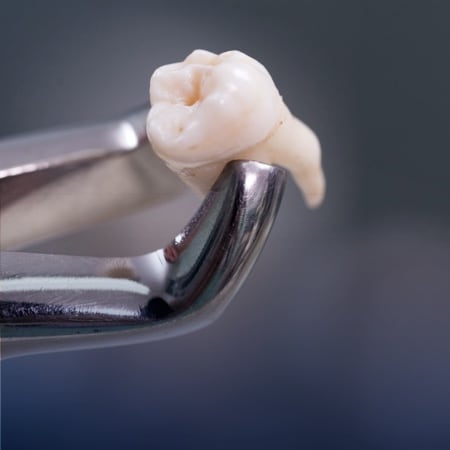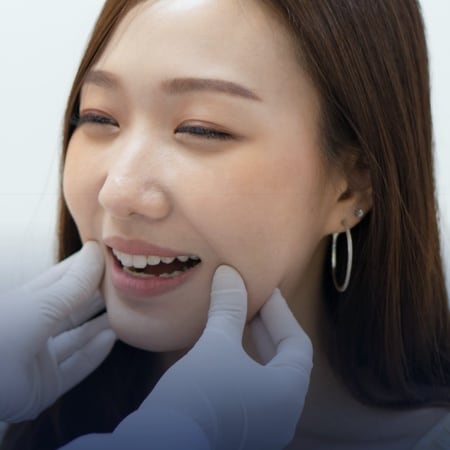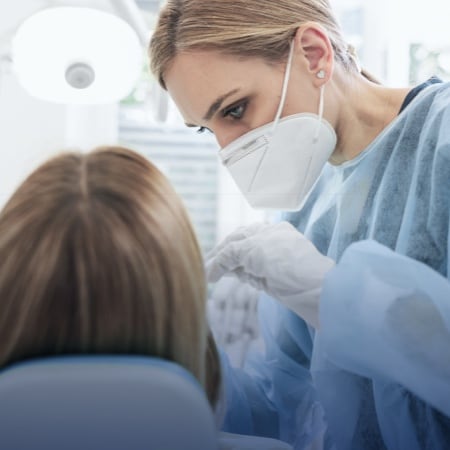If you had a tooth knocked out or have a cut around your mouth that can’t heal on its own, you may have experienced facial trauma.
Facial trauma is an injury to the soft tissue or bones in the face, including your mouth, jaw, and teeth.
Regardless of your injury, advances in medical science often provide great treatment options. But there isn’t a one-size answer to treating these types of injuries. Dental surgeons can offer treatment for several types of facial trauma.
What Is Facial Trauma?
In general, an injury to the soft tissue or bones in the face is considered to be facial trauma. While the potential for disfigurement or scars is a concern, preventing dangerous complications is the primary focus. Because of how complex the human face is—considering the blood vessels, nerves, and proximity to sensitive organs like the eyes—something like an infection can be very dangerous and potentially life threatening.
Of course, your healthcare professionals want to minimize scarring or other permanent physical changes. And this is a reason that specially trained doctors like oral and maxillofacial surgeons take part in facial trauma treatment.
Symptoms of Facial Trauma
Motor vehicle accidents are among the most common causes of facial trauma. But sustaining these injuries during sports, other accidents, chemical exposures, or falls is possible. Facial trauma could be obvious, but there may be times when something happens, and a person may not realize there is damage, like blunt-force trauma that doesn’t break the skin, for example.
Some symptoms of facial trauma could include:
- Changes in feeling or sensitivity in your face
- Deformed or uneven features in your face or facial bones
- Double vision or trouble seeing due to swelling
- Trouble breathing due to swelling or bleeding in your nasal area
- A knocked-out tooth
Types of Facial Trauma
Facial trauma can be separated into 2 categories. Each could result in severe bleeding, swelling, bruising, or distorted facial features.
Facial Fracture
Facial fractures can affect the function or appearance of your face.
- Broken Jaw: A broken upper or lower jaw could require jaw surgery to prevent trouble eating, chewing, swallowing, or speaking. Our skilled surgeons prioritize a seamless preoperative process and postoperative recovery to minimize downtime and allow you to regain jaw function.
- Broken or Missing Teeth: Trauma to the teeth can present a serious risk of infection. If a tooth is knocked out, there may be cases where our dental surgeons can successfully reimplant it. Place a knocked out tooth in salt water or milk immediately, and contact our office as soon as possible. Dental implants can be a great alternative if your injured teeth are beyond repair. Our team at CVOS Oral Surgery can provide you with alternatives and treatment.
- Bone Fracture: The specific treatment approach is determined based on various factors, such as the fracture’s location and severity. Our experienced oral surgeons meticulously address bone injuries, aiming to minimize visible scarring and preserve the natural facial appearance. Your oral surgeon will collaborate closely with you to recommend the optimal treatment option tailored to your needs.
Soft Tissue Injury
Some examples of soft tissue injuries include:
- Cuts or scrapes on the face
- Cuts or torn skin on the scalp
- Nerve damage
- Cuts on the tongue affecting the ability to eat, swallow, speak, or even breathe
- Salivary gland damage—these aren’t just in the mouth
Who Treats Facial Trauma?
The nature of the facial trauma will dictate which type of medical professional will be responsible for treatment. However, it’s worth noting that an oral and maxillofacial surgeon has extensive training for bone and soft tissue injuries involving the face—facial lacerations, knocked out teeth, fractured facial bones (cheek, nose, or eye socket), and upper & lower jaw fractures.
Other Specialties that May Be Involved
Oral and maxillofacial surgeons aren’t the only medical professionals who can treat facial trauma. Multiple specialists may be involved in the treatment, depending on the extent of the injury.
It’s important to remember that several healthcare professionals are often involved in facial trauma treatment, especially in serious or life-threatening cases.
Find Out More About Your Treatment Options
Facial trauma has the potential to be life-changing. But thanks to the knowledge and experience of our oral and maxillofacial surgeons, we can minimize the potential functional and aesthetic long-term effects of the injury.
If you’ve experienced a non-emergency facial trauma or otherwise have questions about treatments related to facial trauma, reach out to our clinic. Our professional team can answer your questions and book you a consultation with one of our dental surgeons to review your options.










